Roger Deakins Quotes & Sayings
13 most famous Roger Deakins quotes and sayings. These are the first 10 quotes we have for him. He's a 76 year old British director born on May 29, 1949.
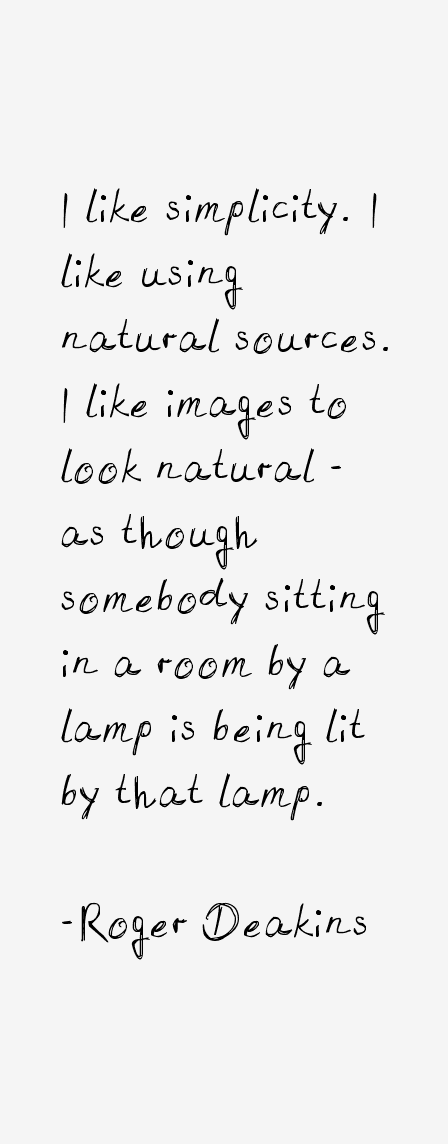
“I like simplicity. I like using natural sources. I like images to look natural - as though somebody sitting in a room by a lamp is being lit by that lamp.”
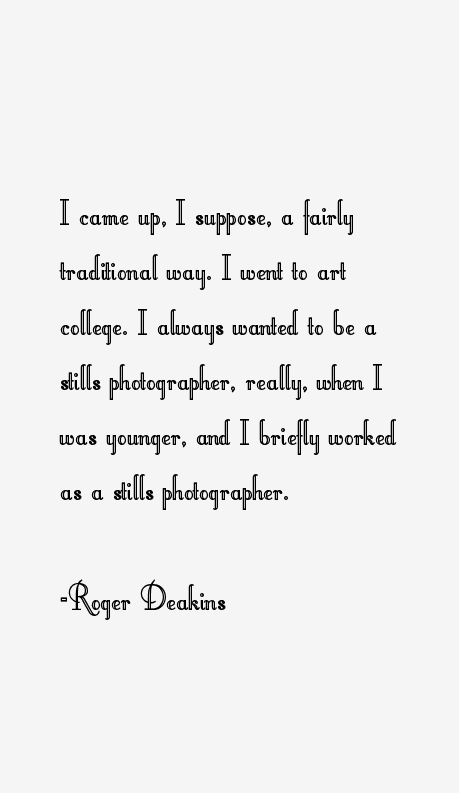
“I came up, I suppose, a fairly traditional way. I went to art college. I always wanted to be a stills photographer, really, when I was younger, and I briefly worked as a stills photographer.”
“I'd done a big movie that I wasn't happy with, and I was moving out of London when I got approached about Barton Fink, because my agent said the brothers were in London. We hit it off immediately, and suddenly I found myself on the way to America!”
“I think technology has advanced so far now that there are some cameras on the market that give film a run for its money. It's all about flexibility in capturing images, and digital or film, it doesn't matter to me.”
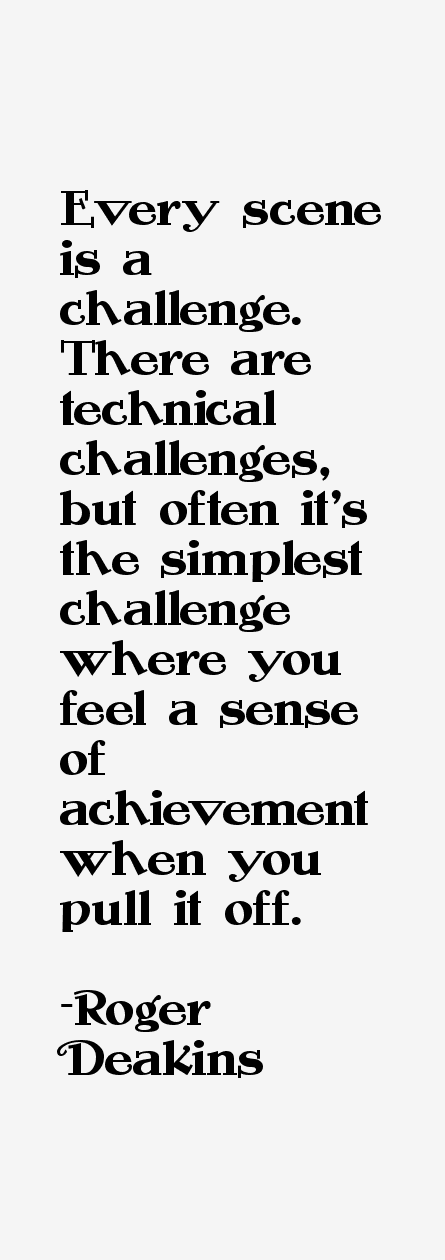
“Every scene is a challenge. There are technical challenges, but often it's the simplest challenge where you feel a sense of achievement when you pull it off.”
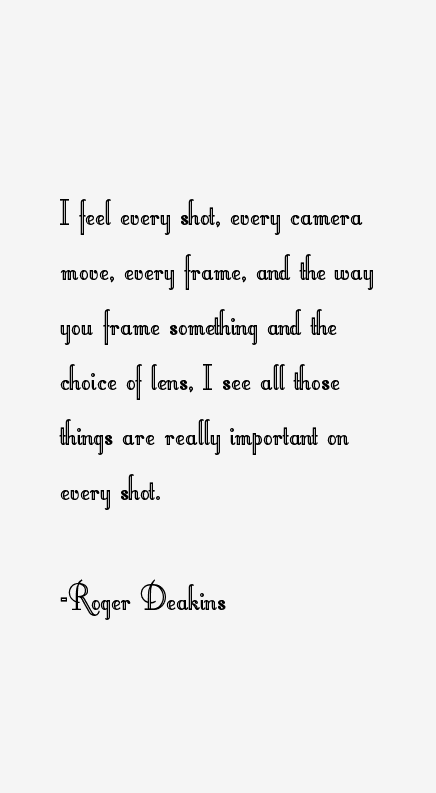
“I feel every shot, every camera move, every frame, and the way you frame something and the choice of lens, I see all those things are really important on every shot.”
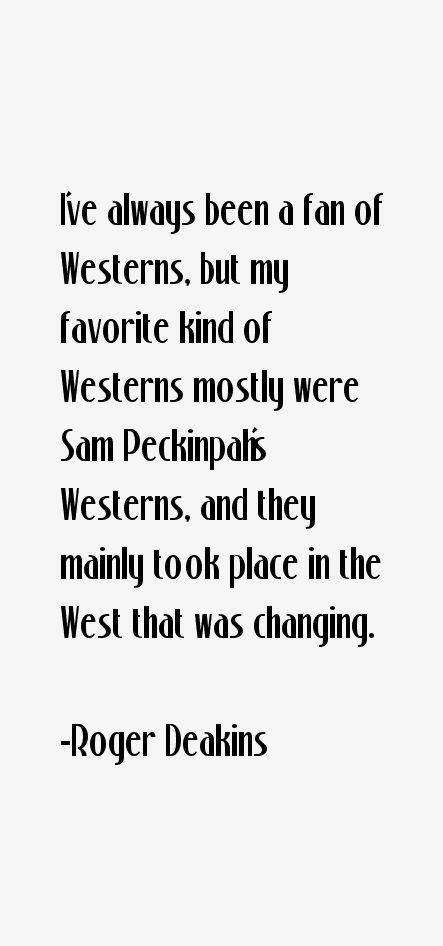
“I've always been a fan of Westerns, but my favorite kind of Westerns mostly were Sam Peckinpah's Westerns, and they mainly took place in the West that was changing.”
“If you shoot with a billion cameras, then there's no perspective. You want to use one shot at a time, so it's better to discover what that is before you shoot, rather than trying to make something in the cutting room, and then it just becomes generic.”
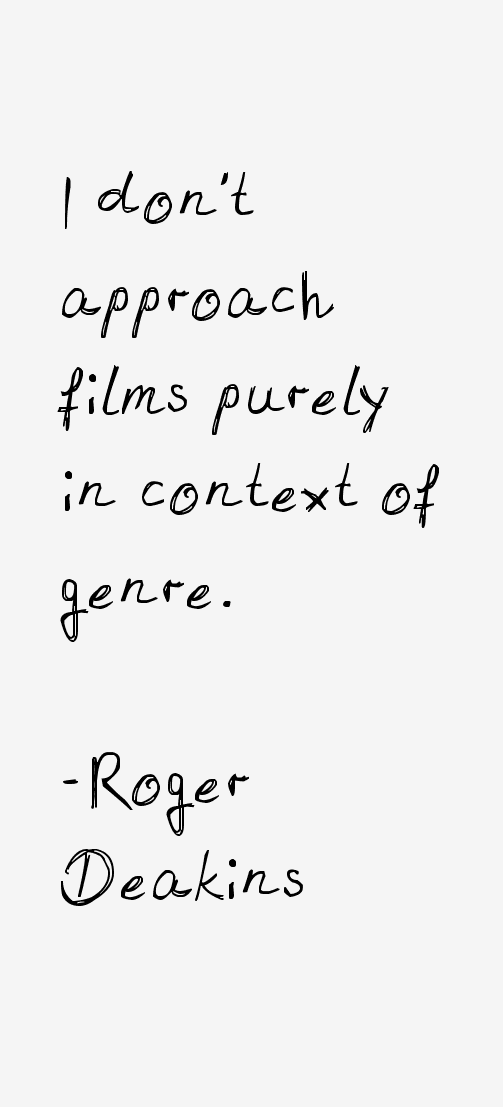
“I don't approach films purely in context of genre.”
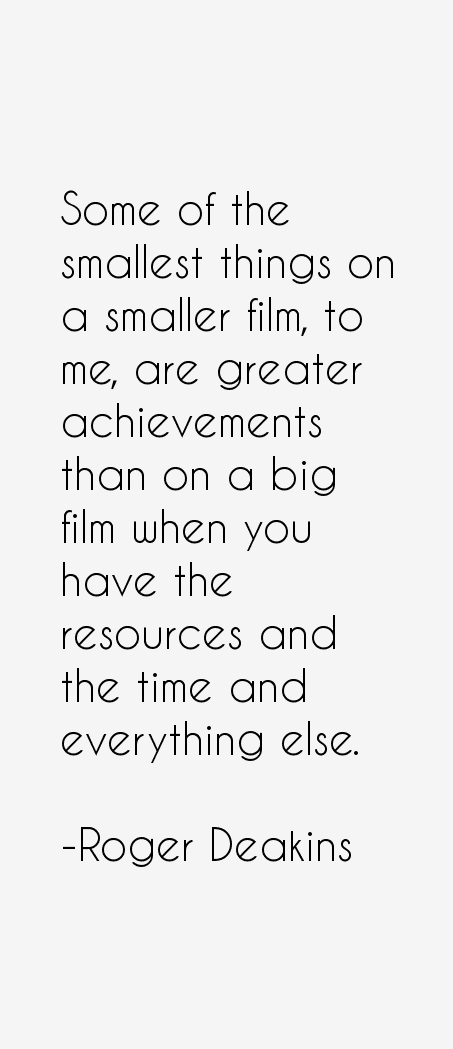
“Some of the smallest things on a smaller film, to me, are greater achievements than on a big film when you have the resources and the time and everything else.”
Roger Deakins Quotes Rating
No Ratings Yet
Leave A Comment
























